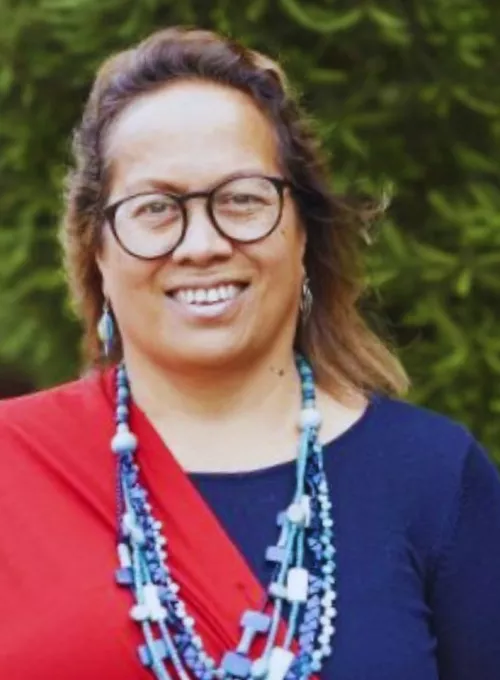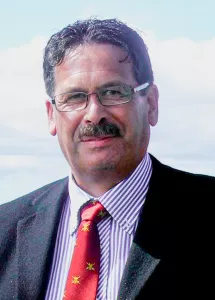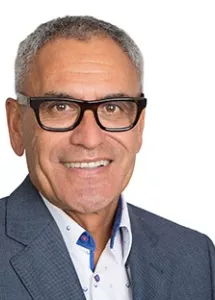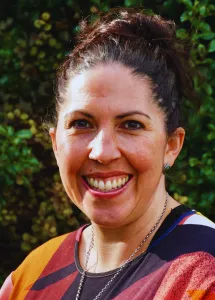
Irene Kereama-Royal is a Māori researcher, cancer equity advocate, and legal scholar dedicated to advancing kaupapa Māori approaches in health, genomic research, and cross-cultural science ethics.
Currently a PhD candidate at Te Whare Wānanga o Awanuiārangi, her doctoral research focuses on how tikanga Māori can foster trust in genomics while transforming cancer research to prioritise whānau Māori wellbeing. She is the first Māori scholar to receive the Māori Early Career Development in Cancer Research Award (2022) from Hei Āhuru Mōwai and the Cancer Society, recognising her leadership in aligning precision medicine with Te Āo Māori values, tikanga-led processes, and Te Tiriti and equity frameworks.
As a trained barrister and solicitor, Irene’s work bridges law, science, and Māori sovereignty. She is a highly sought-after speaker, having presented at international and national events, including the Te Whanaketanga Puutaiao Māori Summit (2019), where she discussed self-determining engagement with genomics. Her advocacy has earned recognition from the Breast Cancer Aotearoa Coalition and the University of Otago.
Irene participates in several national Māori governance advisory groups, trusts, and boards. As the inaugural chair of the Te Aroturuki Māori and genetics science initiative, she played an integral role in co-developing a nationally recognised model for cross-cultural engagement in controversial scientific technologies, such as genetic engineering. The Te Aroturuki model was endorsed by the Royal Commission on Genetic Modification and adopted by Crown Research Institutes (CRIs) across New Zealand. It provides a structured process for ethical dialogue between scientists and Māori, ensuring mutual benefits and informed decision-making. She co-authored a paper, “A Values-based Process for Cross-Cultural Dialogue between Scientists and Māori,” in 2008 as a result.
Irene is a member of the Royal Society of New Zealand’s Gene Editing Panel and serves on the Māori governance group of the Aotearoa Variome Project, He Kākano, both since 2018. These ground-breaking initiatives in the gene editing space include academic and science collaborations with Māori researchers and health providers, such as Ngāti Porou Hauora, aimed at protecting Māori genetic sovereignty, marking a first in Māori genetics research collaborations in Aotearoa. As a key contributor, Irene advocates strongly for Indigenous governance, ensuring that the use of the variome (Māori genetics study) is regulated by a steering group of Māori representatives from participating communities, lived experience advisors, Māori scientists, and mātauranga advisors.
In 2019, she co-authored the Royal Society’s Gene Editing in Healthcare Expert Advice Paper, which led to her own PhD. Her study, Te Ira Tangata, Te Oranga Whānau, explores historic discrimination, lack of ethical practices, and systemic racism towards Indigenous populations in genetics research, ultimately examining its effects on Māori cancer inequities. Her research has been published in the New Zealand Medical Journal and the Journal of the Royal Society of New Zealand, including the impactful article Resisting Ethnic Inequities in Advanced Breast Cancer: A Call to Action (2019).
Irene has contributed to research initiatives at Ngā Wai a Te Tūī Māori Research Centre (Unitec) for eight years, including projects on Māori fisheries and the incorporation of tikanga Māori in businesses (Kia Tika Te Hī Ika) as well as Māori-led housing solutions (Te Manaaki o te Marae). She is currently involved in climate resilience research that utilises tikanga-led gene editing technologies in the Māori horticulture sector at Te Whare Wānanga o Waikato.
As a former executive committee member of the Breast Cancer Coalition of Aotearoa (BCAC), Irene spent five years advocating for better outcomes for Māori women with breast cancer. Guided by whakapapa, tikanga, and tino rangatiratanga, Irene is committed to a future where Māori lead scientific research to fulfil the aspirations of whānau, hapū, and iwi.
“Our whānau deserve answers shaped by our values. Science must honour our stories and serve our future.”
Awards & Distinctions
- Māori Early Career Development in Cancer Research Award (Hei Āhuru Mōwai/Cancer Society, 2022)
- Key contributor to New Zealand’s first Gene Editing in Healthcare expert advice papers (Royal Society, 2017, 2019)
- Co-Developer of the Te Aroturuki Model, nationally adopted for Māori engagement in controversial scientific technologies (Scion/ERMA NZ, 2008)
- Māori Women’s Breast Cancer Inequities Advocate
Affiliations
- Royal Society of New Zealand Gene Editing Panel, Science Member
- Hei Āhuru Mōwai Māori Cancer Leadership Network, (Member)
- He Kākano Aotearoa Variome Project Māori Governance Group, (Member)
- Te Aroturuki Working Group (Inaugural Chair)
- Breast Cancer Coalition Aotearoa Executive Governance, (Ex-Executive Committee)
- Hei Ōranga Ū Māori Breast Cancer Research, Education and Advocacy Trust, (Co-Chair)
- Te Ira Tātai Whakaheke Māori Genomics Centre, Exec (Secretary/Treasurer)
- Māori Expert Advisory Group, Precision Medicine and AI Health, Te Whatu Ora (Member)
Links:
SINGAotearoa 2021 organising internships
Research Gate Irene Kereama-Royal Profile
Te Whanaketanga Puutaiao Maaori Pre-Conference & Summit Friday 30 – Saturday 31 August 2019 Presenter ‘Navigating Self-Determining Engagement With Genomics Research.’
Ngāti Whātua Ōrākei Vertical Papakāinga Housing Development, January 2022 Abstract
Resisting ethnic inequities in advanced breast cancer: a call to action New Zealand Medical Journal Article 13 December 2019
15 May 2025



